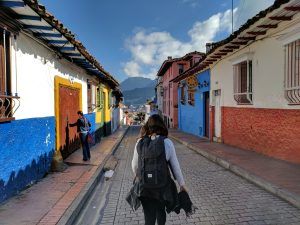Top Eight Lessons from the Past Six Years of OGP Local
Since 2011, OGP has provided a platform for national governments and civil society partners to implement thousands of open government reforms across 77 countries. But it is increasingly recognized that many innovative open government reforms are also happening at the local level, where governments can engage more directly with citizens. That is why OGP launched OGP Local in 2016, which today brings together 106 local governments and their civil society counterparts.
More than five years after the launch of the program, now is the time to take stock of what we have learned. The new report from the Independent Reporting Mechanism (IRM)The Independent Reporting Mechanism (IRM) is OGP’s accountability arm and the main means of tracking progress in participating countries. The IRM provides independent, evidence-based, and objective ... highlights the main results and key successes of 68 commitments implemented by 12 OGP Local members between 2018 and 2021 and offers a glimpse of the challenges and lessons learned.
Promising Results
Commitments that achieved the strongest results benefited from a number of enabling factors, such as clearly defined objectives with realistic activities, strong political support, and strong cross-departmental and multi-stakeholder collaboration throughout the process. These experiences show that:
- Embedding government feedback leads to better results. One of the most notable areas of success is engaging citizens in prioritizing local government projects and public spending (Basque Country, Spain; Buenos Aires, Argentina; Madrid, Spain; and São Paulo, Brazil). These reforms ensure that governments are targeting a portion of their budgets on areas that local residents care about. A key factor in producing positive results in these initiatives has been the ability of citizens to suggest and vote on how the government should allocate a portion of the budget. But crucially, the governments’ effort to document and provide feedback to citizens on how these proposals were taken into account, strengthened the accountability.
- Participation works best when it addresses day-to-day challenges of citizens. The area of urban planning and infrastructure has been another bright spot. They address concrete problems and produce concrete outcomes by drawing on user experiences to inform planning decisions (like Seoul, Republic of Korea and Buenos Aires, Argentina) or by allowing citizens to provide feedback on infrastructure projects (like Sekondi-Takoradi, Ghana and Kaduna State, Nigeria).
- Open dataBy opening up data and making it sharable and reusable, governments can enable informed debate, better decision making, and the development of innovative new services. Technical specifications: Polici... initiatives work best when they support citizens to use the released data. There has also been a strong emphasis on tools and mechanisms to open up access to government data, increase transparencyAccording to OGP’s Articles of Governance, transparency occurs when “government-held information (including on activities and decisions) is open, comprehensive, timely, freely available to the pub... More of procurement and involve citizens in monitoring contracts. These initiatives have produced some promising results, especially where they support citizens in using the released data, such as training youthRecognizing that investing in youth means investing in a better future, OGP participating governments are creating meaningful opportunities for youth to participate in government processes. Technical ... More volunteers to uncover abandoned or poorly executed community projects like in Kaduna State, Nigeria, enabling local CSOs to push for more effective policies to tackle socio-spatial inequalities in São Paulo, Brazil, or contextualizing and linking data across different areas of government to facilitate citizen oversight of spending decisions and budget execution like in the Basque Country, Spain and Scotland, United Kingdom.
Challenging Contexts
However, many of the planned actions met with (sometimes unforeseen) obstacles along the way, including the COVID-19 pandemic, changes in political leadership and priorities, poorly conceived commitments, and resource constraints.
- Responses to the pandemic meant repurposing activities or diverted resources. The rapid spread of the COVID-19 pandemic in early 2020 coincided with the halfway point of the implementation phase of most action plans. Responses to the pandemic meant that time and resources were often diverted, and in some cases, staff redeployed, to support the immediate response. That said, there were some examples of innovative repurposing of activities to adapt to the crisis such as the creation of the Coronavirus Public Engagement Expert Advisory Group in Scotland or a web portal with information on the spread and evolution of COVID-19 cases in Madrid.
- Political transitions had an impact on commitmentOGP commitments are promises for reform co-created by governments and civil society and submitted as part of an action plan. Commitments typically include a description of the problem, concrete action... implementation. Beyond the pandemic, political changes emerged as one of the key challenges to the successful implementation of commitments across a number of local government action plans. In some cases, incoming administrations introduced changes to local government priorities, leading to a de-prioritization of the open government agenda. This was also sometimes accompanied by sweeping staff changes, which meant that those responsible for commitment implementation were no longer in position, leading to a loss of institutional memory.
- Design flaws limit the achievement of results. Another recurring barrier to successful commitment implementation relates to commitment designs. A number of commitments included technical design flaws or promised too much and didn’t achieve the intended results. Other commitments depended on the delivery of actions beyond the control or mandate of those responsible for commitment implementation, which limited their feasibility. For example, in Madrid, Spain, the development of a web platform to communicate waste prevention information relied on the roll out of the city’s Waste Strategy, which was itself subsequently annulled. In Elgeyo Marakwet, Kenya, the development of local procurement guiding documents was modeled after the central government’s procurement guidance, leaving little room for meaningful adaptation at a local level.
- Open government efforts need resources to be sustained. In almost half of local jurisdictions, limited resources and/or capacity meant that governments were not able to sustain open government infrastructure once established. This is particularly notable in online platforms and portals that were not regularly updated or feedback mechanisms that were not effectively run after their initial launch.
- Civil society participation should be maintained all along the action planAction plans are at the core of a government’s participation in OGP. They are the product of a co-creation process in which government and civil society jointly develop commitments to open governmen... process. There was in many cases an absence of formal mechanisms to ensure ongoing dialogue between government and civil society partners during implementation. Sometimes, the government took control of the implementation process with no clear or meaningful roles for civil society to play. As a result, the emphasis on collaboration during co-creation often lost momentum once the plans were signed off. In other cases, the failure to adequately communicate progress on commitments led to a loss of civil society’s motivation to remain engaged.
Perhaps the clearest message of all is that strong commitment design is key to successful implementation.
Top recommendations for co-creating and implementing local government reforms
Experience across these 12 local government pioneers has yielded a number of valuable lessons for OGP Local as a whole and for individual local governments. Perhaps the clearest message of all is that strong commitment design is key to successful implementation. Commitments that achieved strong early resultsEarly results refer to concrete changes in government practice related to transparency, citizen participation, and/or public accountability as a result of a commitment’s implementation. OGP’s Inde... More were also those that were considered to have greater potential impact at the design stage. Based on these lessons, here are some key recommendations:
| Recommendations for action plan content and design |
| Ensure political feasibility, alignment with citizen priorities, and a clear open government approach to achieve stronger commitment results. |
| Align commitment objectives and activities with political and budgetary cycles, while designing longer-term initiatives which address systemic issues. |
| Design specific, measurable commitments with clear expected outcomes whilst allowing for a degree of flexibility in implementation. |
| Focus on the demand side of open government reforms by supporting the uptake of open data and participation tools and platforms. |
| Embed government feedback and reasoned responseOngoing dialogue between stakeholders during the development of an OGP action plan is critical to the plan’s success. Specifically, communicating back to stakeholders the ideas received and decision... into the design of commitments to strengthen accountability. |
| Recommendations for the co-creation and implementation process |
| Build cross-government and cross-party support for open government. |
| Define clear roles and expectations for civil society engagement in action plan implementation. |
| Create and institutionalize structures to encourage and support civil society collaboration in action plan implementation. |
| Embed regular monitoring and ongoing learning into the OGP process to support course correction, sustain stakeholder interest and build trust. |
| Ensure sufficient resources and capacity to sustain open government reforms on both the government and civil society side. |
Find the full IRM report with an in depth analysis on lessons learned and recommendations for OGP local governments here.
No comments yet
Related Content

Independent Reporting Mechanism
Since 2011, the IRM has provided independent, evidence-based, and objective reporting to hold OGP members accountable and support their open government efforts.

IRM Report on Local Action Plans
Given the unprecedented challenges caused by the COVID-19 pandemic and considering the objectives of the new OGP local strategy, the IRM decided on a strategic approach to the assessment of the…

OGP Local
Through OGP Local, participants can learn how to use open government values such as transparency, accountability, responsiveness, and inclusion to better meet the needs of the citizens they serve.


Leave a Reply